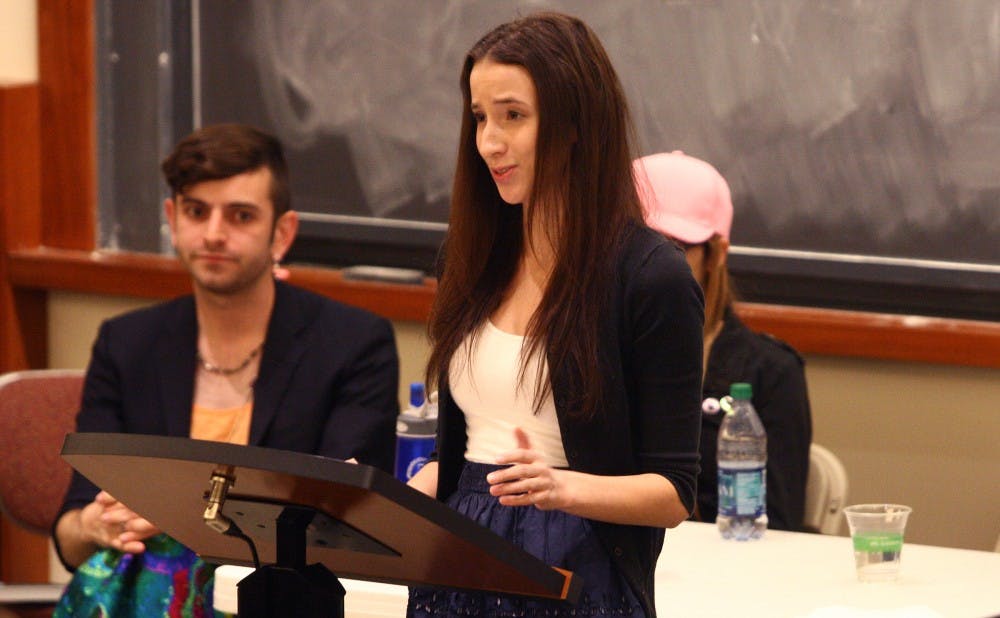In light of campus and national conversations about adult film actress— Belle Knox—several professors, students and sex workers gathered for an academic discussion about local sex workers Wednesday night at the Sanford School of Public Policy.
The panel-led discussion touched on topics including feminism and cultural perceptions of sex. It also examined sex work within historical, societal and economic frameworks. The panelists were Gunther Peck, Fred W. Shaffer Associate Professor of History and Public Policy; Pete Sigal, professor of history; Diane Nelson, professor of cultural anthropology; Luna, a Raleigh-based sex worker; senior Jacob Tobia, Duke Student Government vice president for equity and outreach; and adult film actress Belle Knox, a freshman. The event drew more than 100 attendees.
The goal of the discussion was to initiate a broader conversation about sex and sex work, Peck said.
“We wanted to move beyond one woman’s decision to engage in sex work,” Peck said. “To talk about sex as work immediately ruptures beliefs held dear by many people. To recognize that is to recognize what the stakes are of this conversation.”
The ‘politics of rescue’—or characterization of sex workers as victims—pervade the way in which sexual labor is addressed, Peck said. Such a framework of perception can inhibit positive dialogue by refusing workers the right to narrate their own stories, he noted.
Both supporters and critics of Knox have used her to reinforce their own opinions on sex work instead of allowing Knox to voice her own narrative, Sigal said.
Sex work is no different from any other occupation, Luna said. Although sex workers do not always enjoy their work, neither do many people in other jobs, she said. Many women involved in sex work consider their occupation to be the best option in a “cornucopia of sh*t jobs.”
“There’s this bourgeois, feminist idea that you have to like your job,” Luna said. “It’s looking at the situation through a privileged lens, with the assumption that we can all access those dream jobs and earn a living. That’s bullsh*t.”
Sex is a transaction, whether or not it is economic, Tobia said. He noted that exchanging sex for material, career or social gains is not uncommon at Duke. For instance, students may sometimes engage in sex with certain individuals to get into organizations of their choice or gain social capital.
“If we’re going to attack Belle, we have to attack ourselves too,” Tobia said. “We have to think far more about what systems we participate in. It behooves us to stop thinking about ourselves as not sex workers.”
Panelists urged more open discussion of sex work and emphasized that criminalizing and shaming sex workers would not help workers who are currently mistreated.
“No one is willing to consider the lives of the people behind the cameras,” Knox said. “No one wants to consider that we have hopes and dreams and ambitions. No, instead we are hoes and bimbos. I reject this.”
The event was hosted by the Forum for Scholars and Publics and the Program in Women’s Studies.
Get The Chronicle straight to your inbox
Signup for our weekly newsletter. Cancel at any time.

